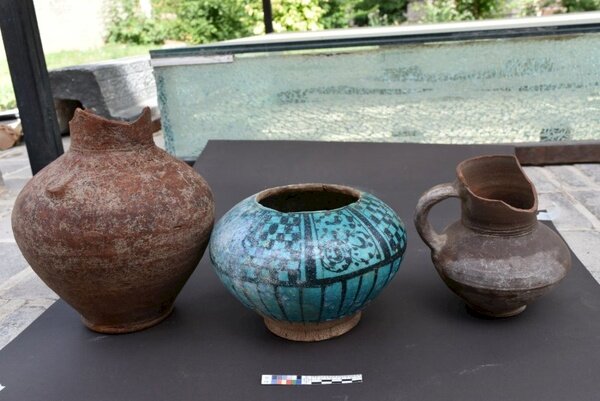Ilkhanid earthenware, qanat remnants unexpectedly discovered

TEHRAN – Workers have accidentally discovered pottery pieces and remnants of a subterranean aqueduct (qanat) while digging a hole, breaking street asphalt in a northeaster Iranian city.
Four clay jars and remnants of qanat were found during a road amendment project in Bojnourd, ILNA reported on Thursday.
Archaeological assessments of the jars suggest they date from the Ilkhanid era, the report said.
Ilkhanid dynasty, also spelled Il-Khanid, was a Mongol dynasty that ruled Iran from 1256 to 1335. Il-khan is Persian for “subordinate khan.”
Based on available data, some 37,000 out of a total of 120,000 ancient qanats are still in use in Iran in arid and semi-arid regions of the country.
In 2016, a selection of eleven qanats was collectively inscribed on the UNESCO World Heritage list under the title of Persian Qanat. Each of them epitomizes many others in terms of geographic scopes, architectural designs, and other motives. Such subterranean tunnels provide exceptional testimony to cultural traditions and civilizations in desert areas with an arid climate.
UNESCO has it that “The qanats provide exceptional testimony to cultural traditions and civilizations in desert areas with an arid climate.”
AFM
